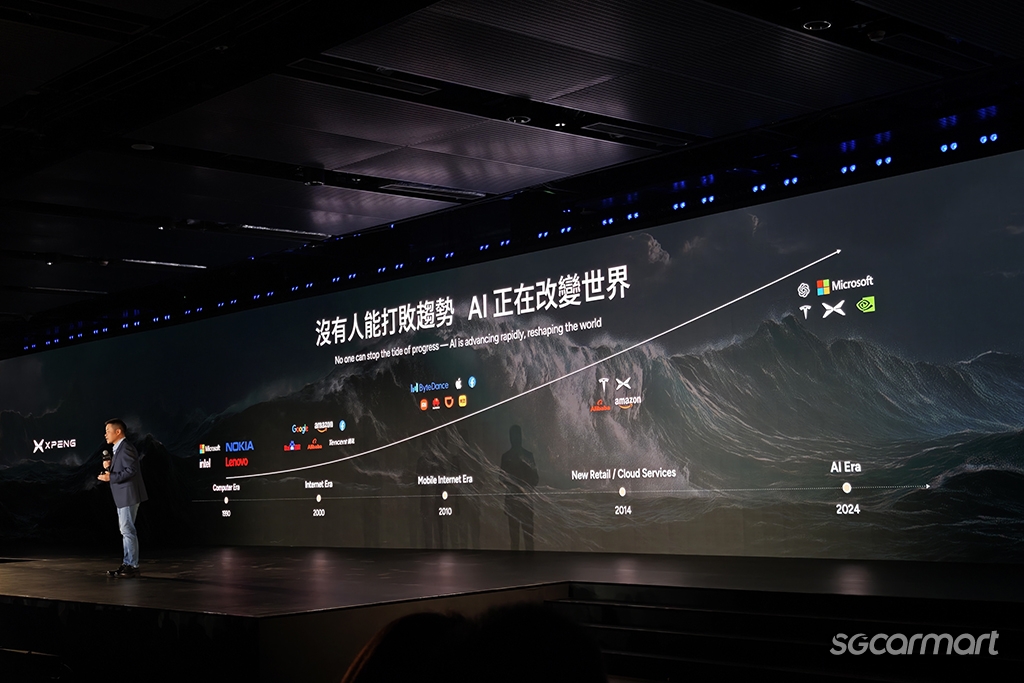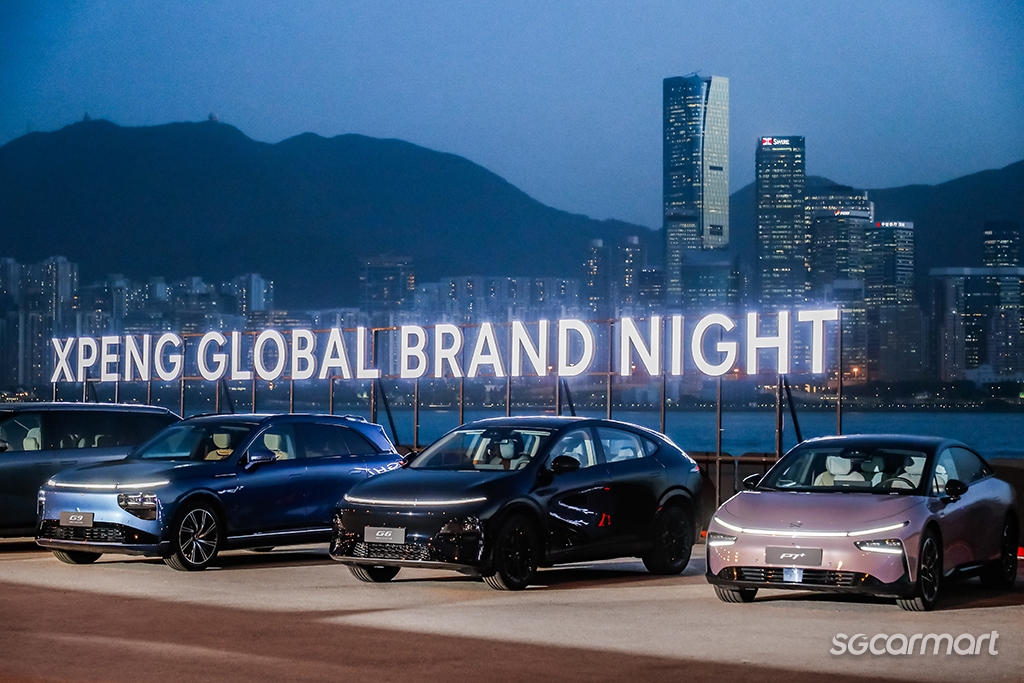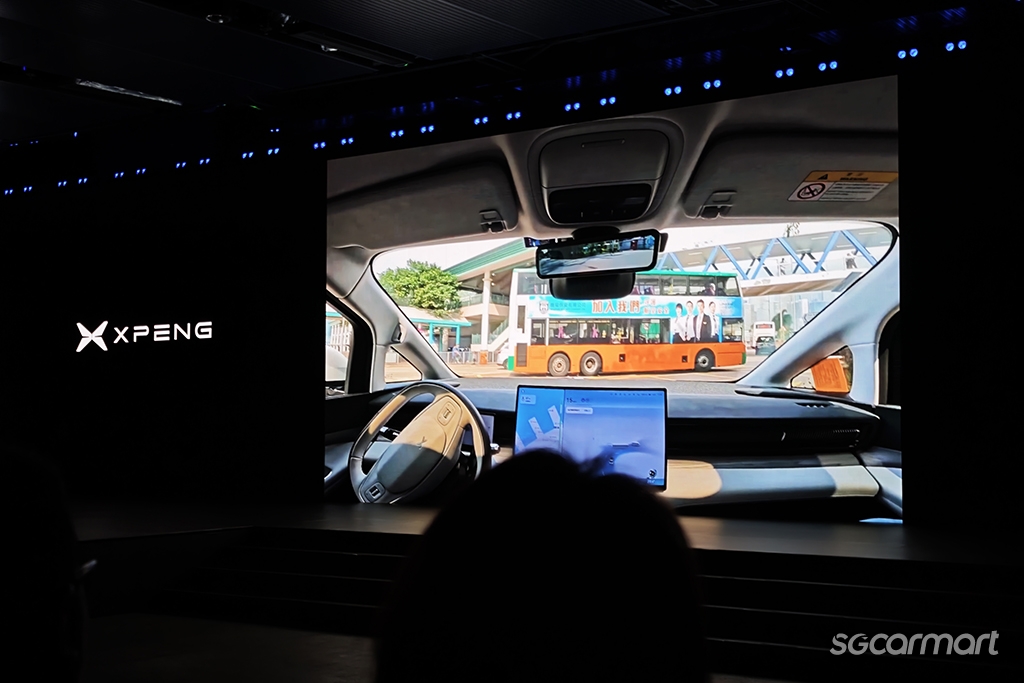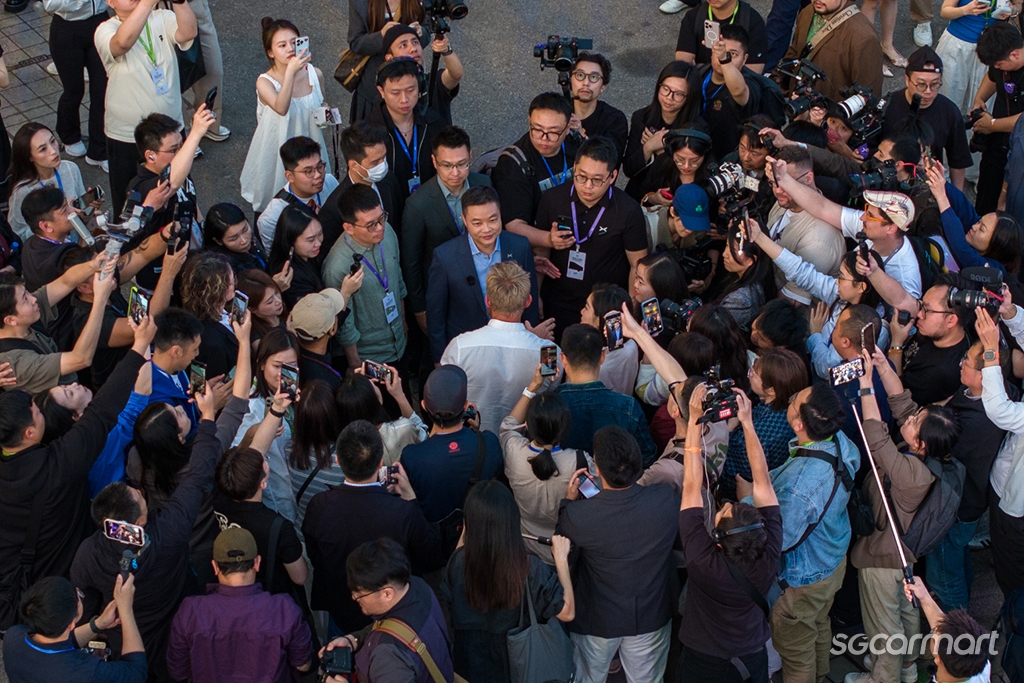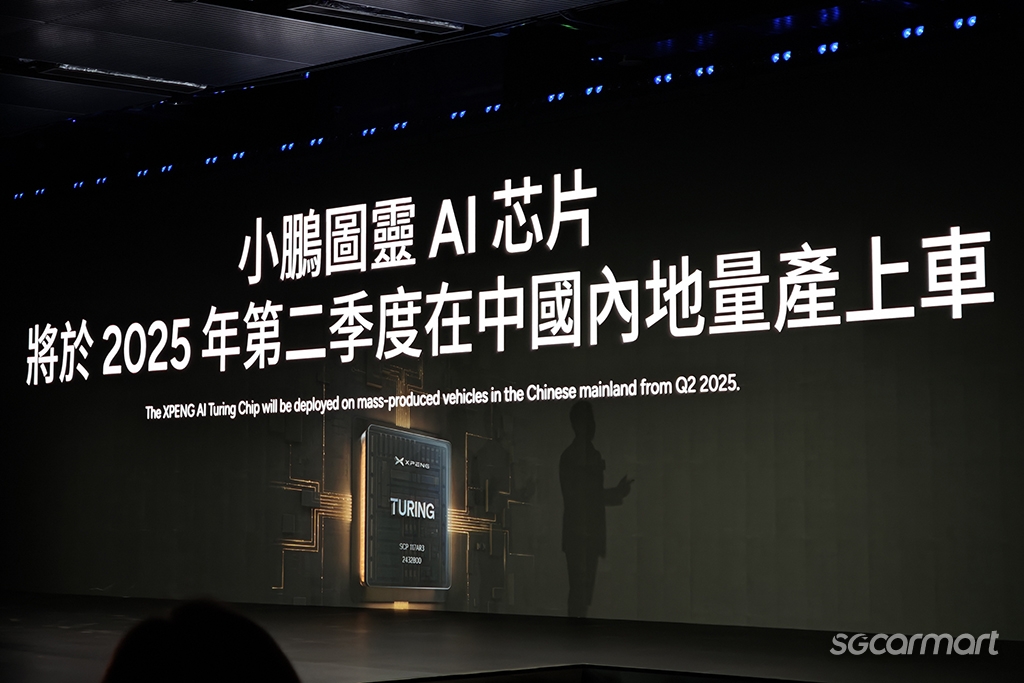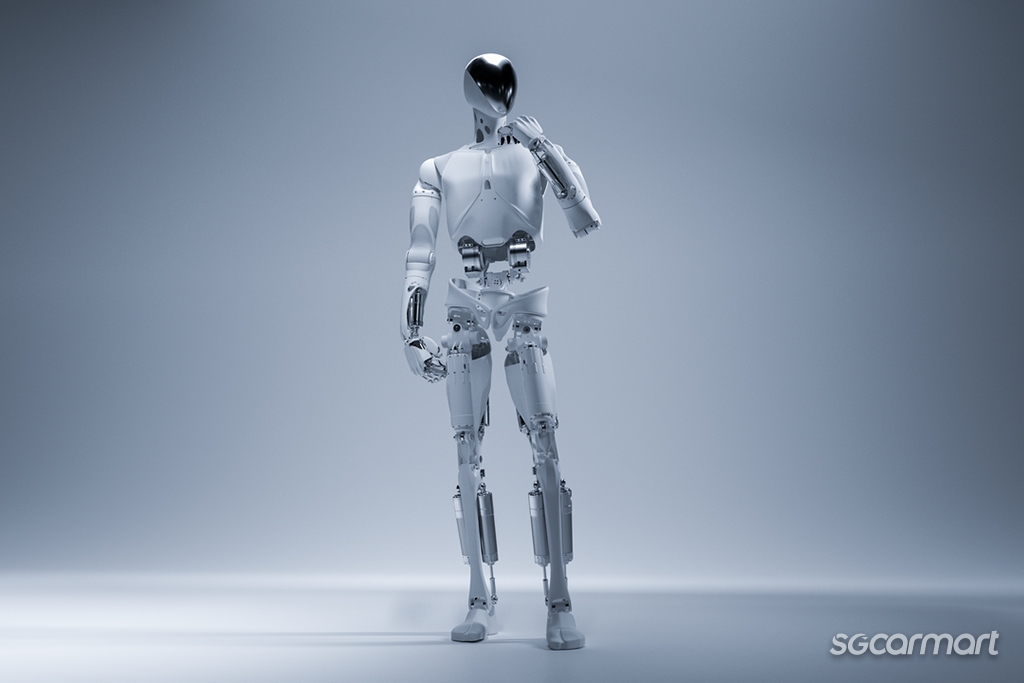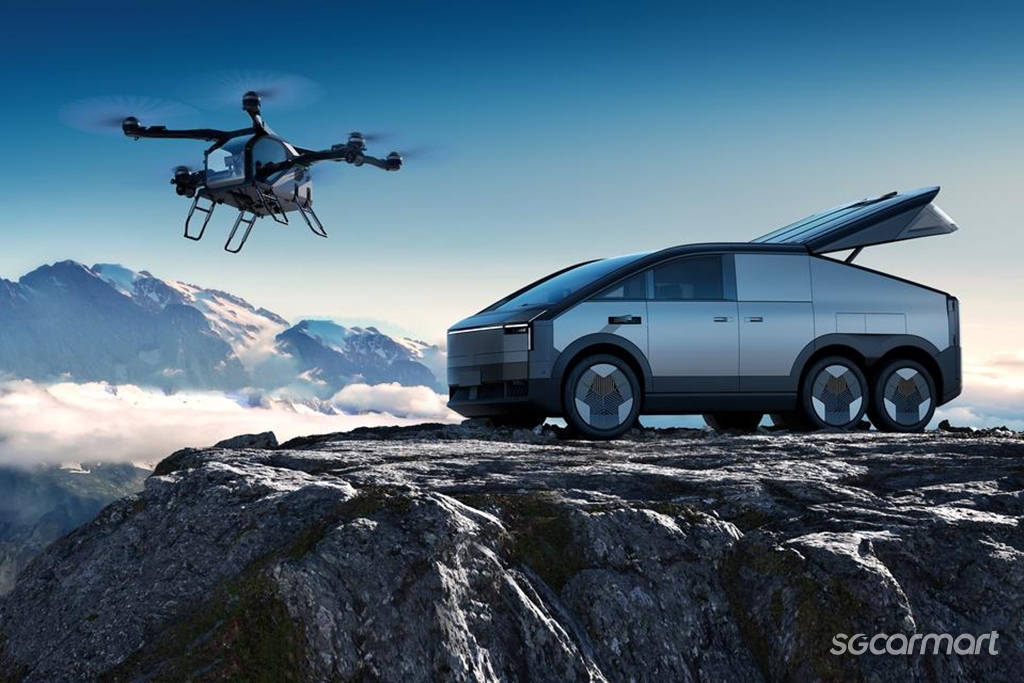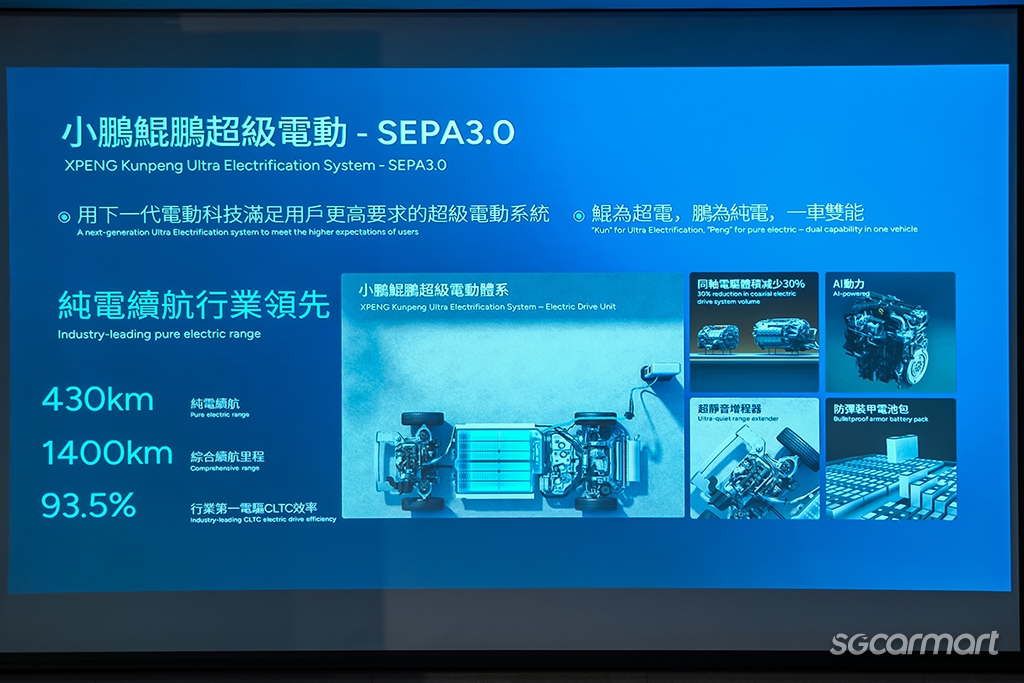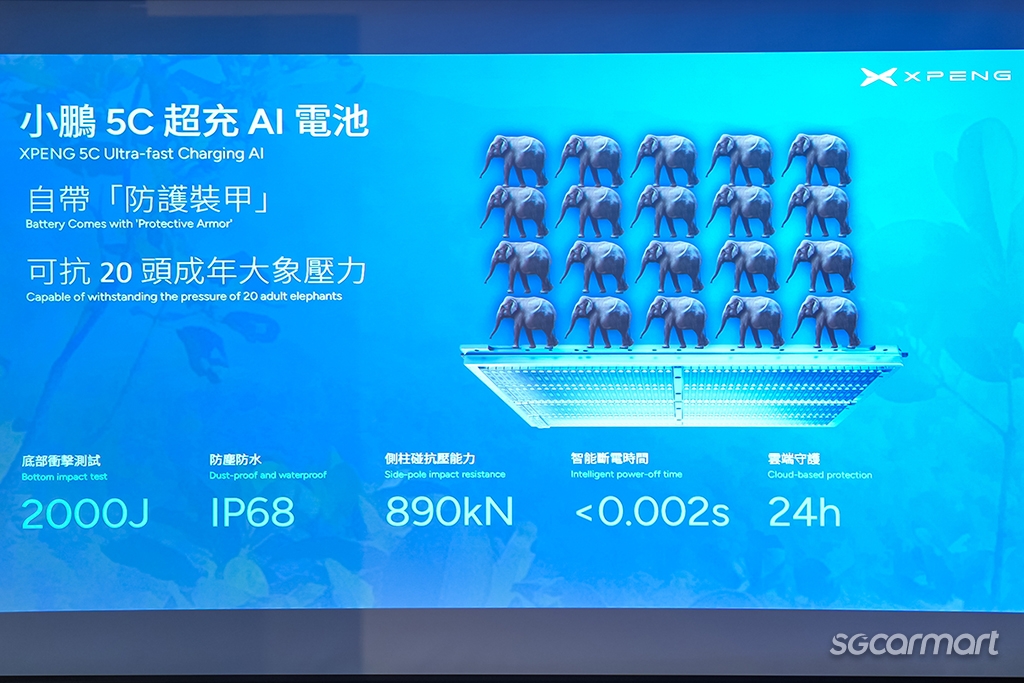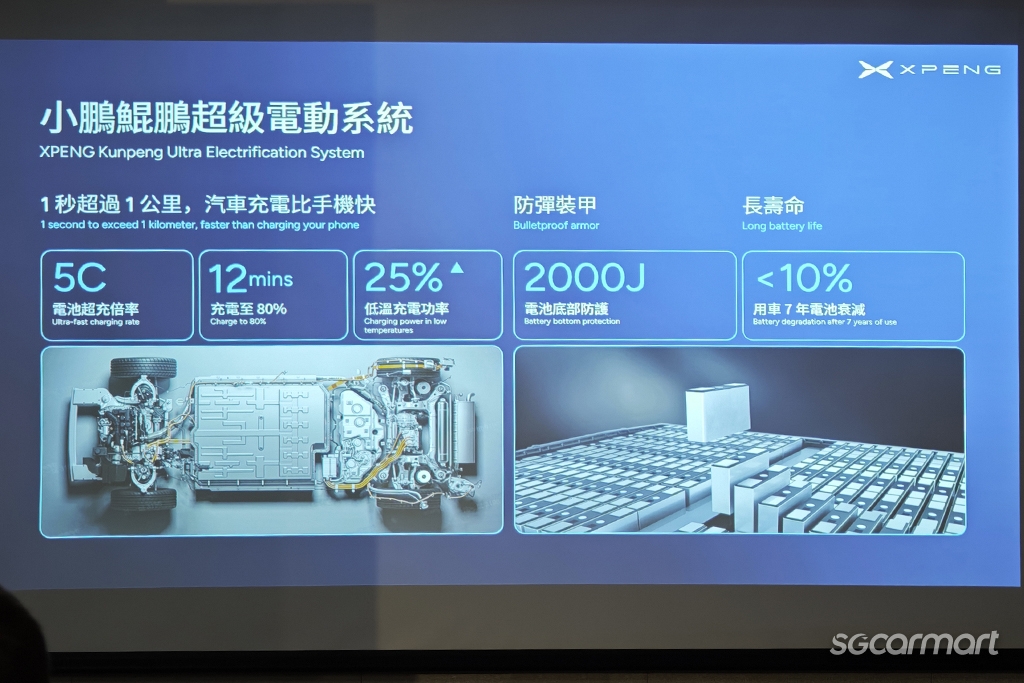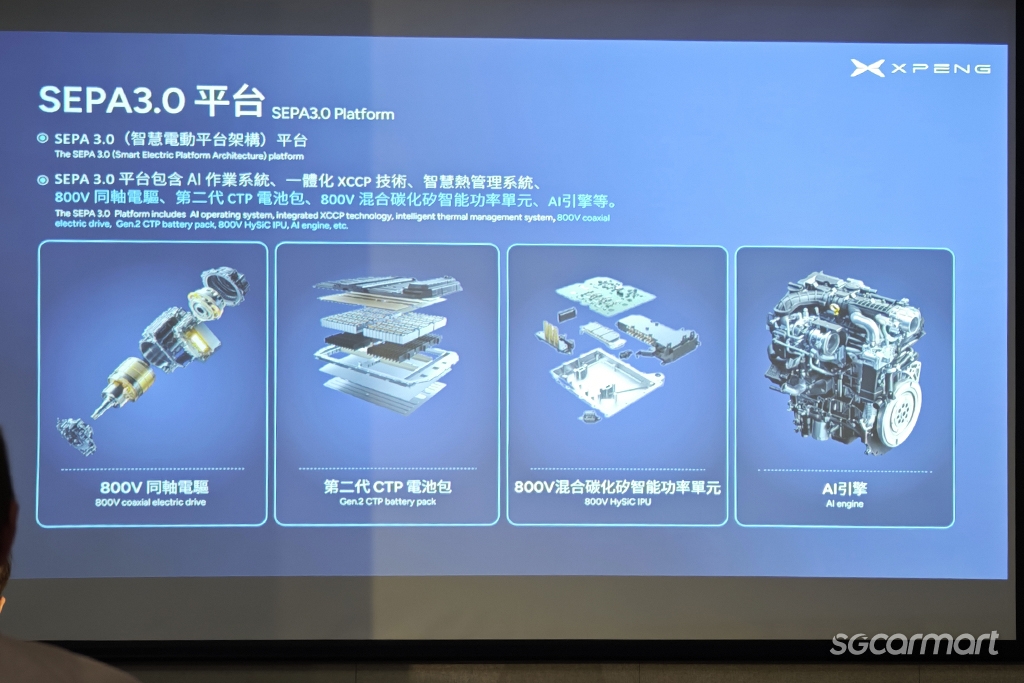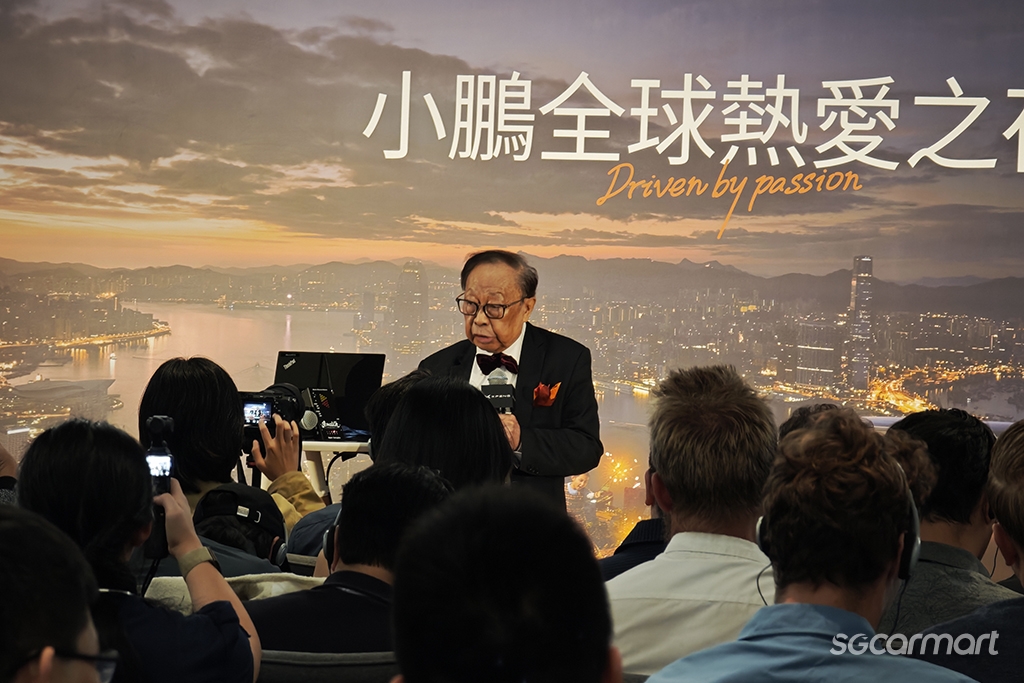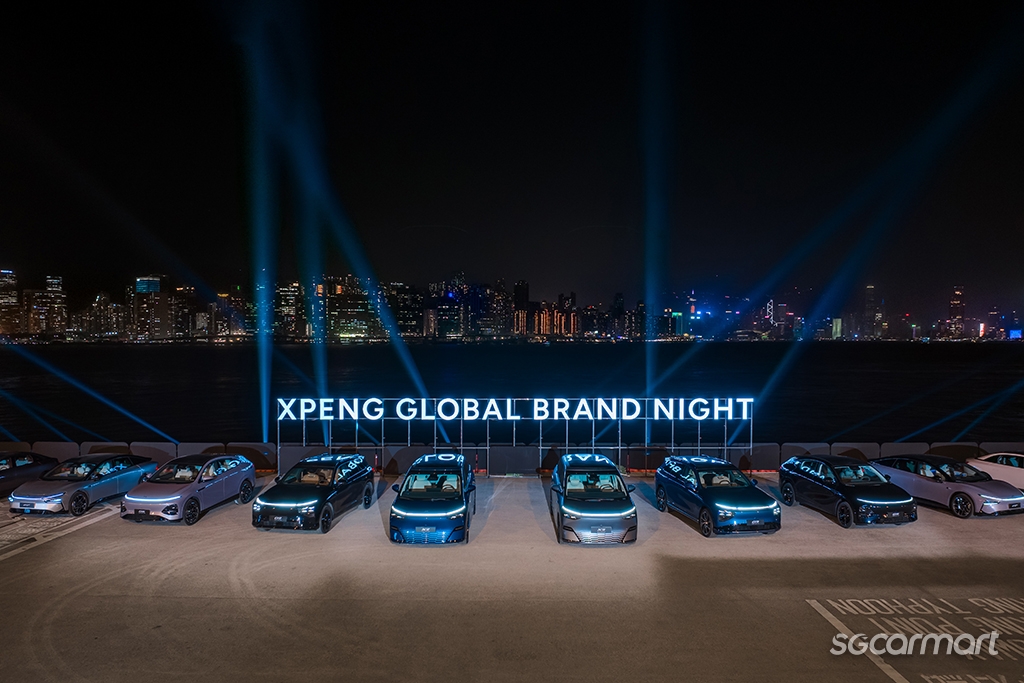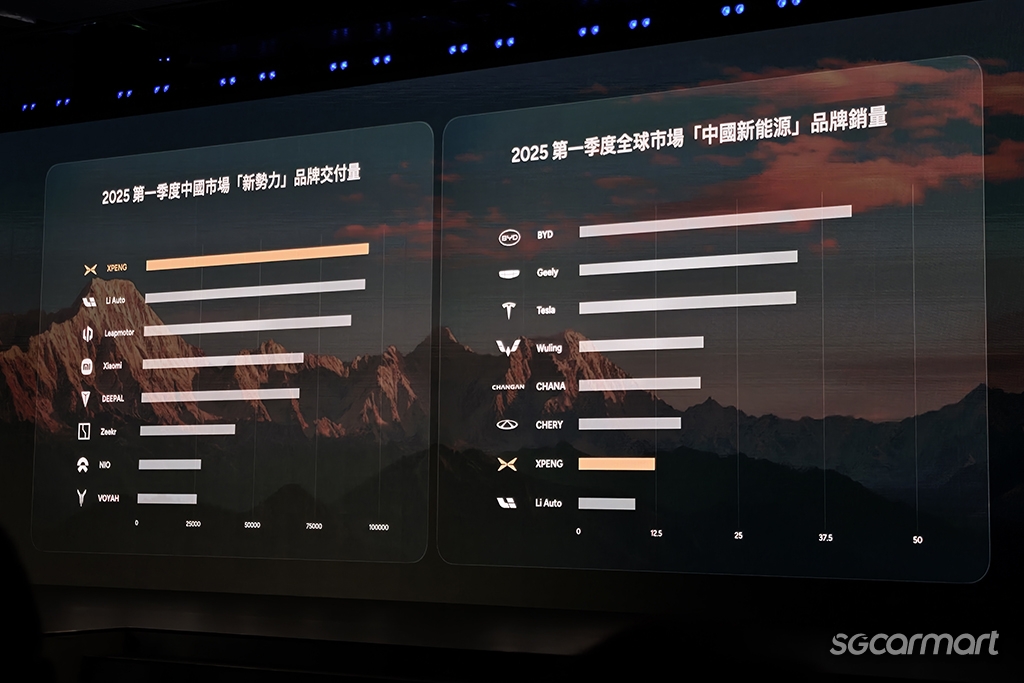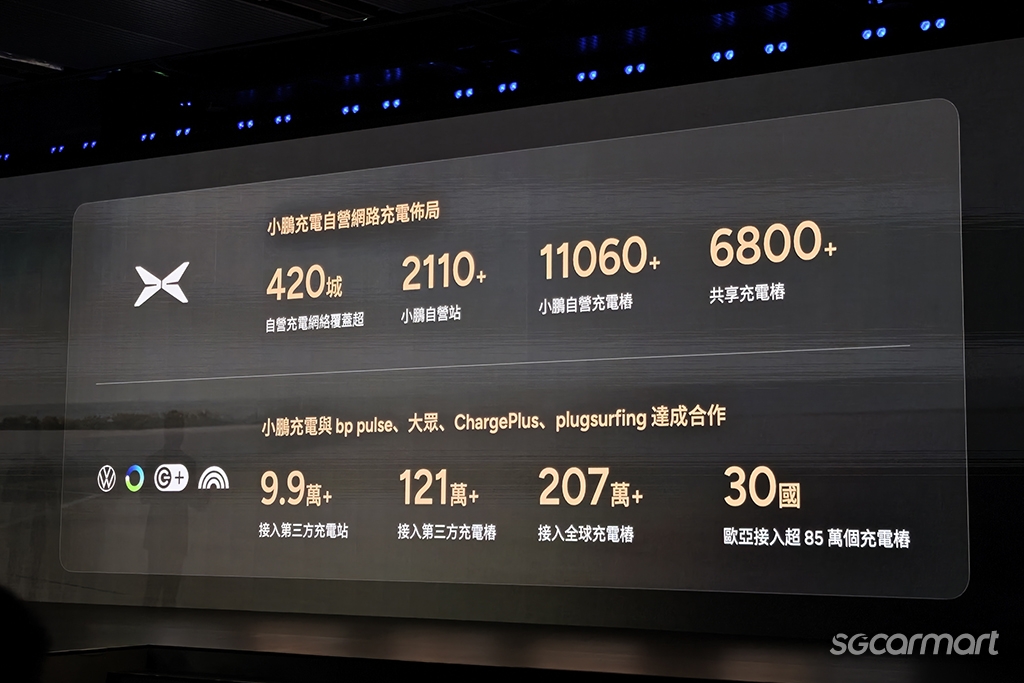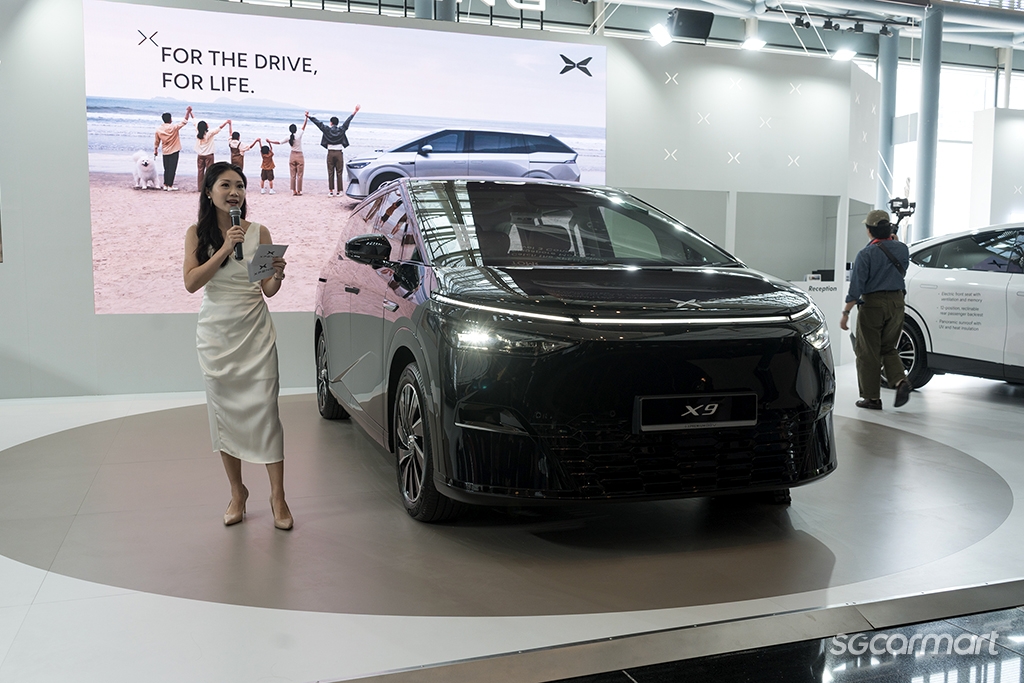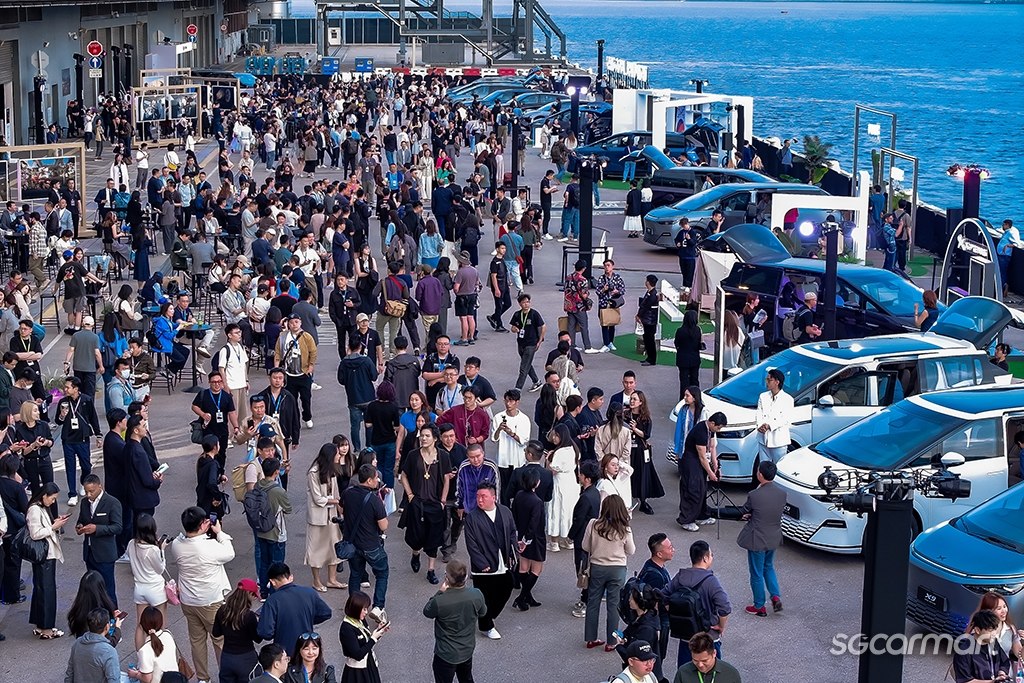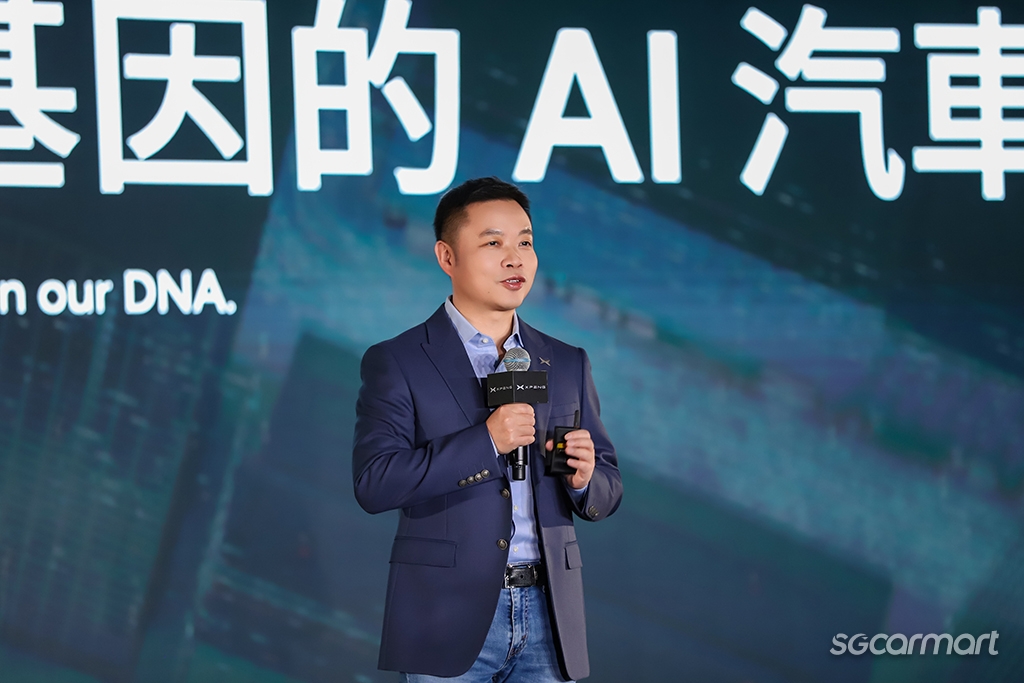Poised for success: XPENG and its AI-powered vision
22 Apr 2025|193 views
XPENG hosted an unprecedented global brand night event in Hong Kong, where the updated 2025 XPENG X9, featuring 496 technical upgrades, was launched in conjunction. While many might have expected to learn more about the brand's localised plans and pricing of the X9 for each region, the event's agenda was of a much broader perspective.
At the event, Mr He Xiaopeng, CEO of XPENG, took to the stage with a two-hour long keynote to showcase to the world what the brand has achieved thus far and its roadmap going forward in this competitive market. The event covered the brand's beginnings and its many achievements, but these were the topics that stood out:
An AI-fueled future
Artificial Intelligence (AI) is a buzzword that has been thrown around frequently - to some businesses, it is just something that sounds good to investors, while others would rely on AI tools to simplify their existing operations.
But with XPENG, AI is a core component of the brand, and it uses the technology to achieve vast technological enhancements that would otherwise be near-impossible to achieve in the same time frame.
A use case can be seen in the brand's intelligent driving system, XNGP - a full-stack, end-to-end AI-powered ADAS system for public roads in China. As XPENG's cars are being driven and used on the roads, a large amount of information is transmitted and fed to the AI models, training them every day. Like a human driver, XPENG's AI continually trains with the vast amount of data, evolving over time to improve in all scenarios.
Without the use of AI, a large amount of coding needs to be done to account for the infinite scenarios that drivers encounter on the roads - and adapting to the different road conditions in different parts of the world would be a much tougher undertaking. As showcased to us in a video during the keynote, an XNGP-powered XPENG car had little trouble adapting to the left-hand traffic of Hong Kong (China has a right-hand traffic layout) - the car was able to adapt to complicated traffic situations, including roundabouts.
Self-reliant for greater tech advancements
The full-stack AI solutions are just one part that highlights XPENG's focus on in-house development. Apart from software solutions, XPENG has also developed its own AI Chip.
Named Turing, XPENG's AI Chip features a 40-core processor capable of running AI models with up to 30 billion parameters models locally, delivering three times the computing power of existing chips.
It was explained by Mr He that a specialised chip would be a more effective solution for the brand's specialised needs. A generic chip would contain functions and features that aren't necessary, which will add to cost and could result in lower performance.
Additionally, by developing its own chip, XPENG's reliance on third-party semiconductor firms would be reduced, shielding the brand from potential delays or disruptions due to external sources. XPENG's Turing AI chip is set for mass production in the second quarter of 2025. The AI chip will be applied across its AI-powered vehicles, flying cars and robots.
XPENG's future includes internal combustion engines
For an EV startup brand that has only produced electric vehicles from the start, it comes as quite a surprise that XPENG's future not only includes improved battery and electric motor technology, but range extenders as well.
SEPA 3.0 will feature a next-generation battery that could be charged at a rate of 5C, allowing 0-80% charge in just 12 minutes
XPENG announced its SEPA 3.0 platform, which incorporates XPENG's Kunpeng Super Electric System. This platform boasts a pure-electric range of 430km, and a combined range of up to 1,400km. The drivetrain in this upcoming platform consists of an 800V coaxial electric drive, a second-generation Cell-To-Pack battery, an 800V HySiC Intelligent Power Unit and an engine developed with AI assistance.
The next generation battery boasts an ultra-fast charging rate of 5C, which requires just 12 minutes to be charged from 0-80%, with less than 10% battery degradation after seven years of use. Meanwhile, the range-extender is an engine that will be developed with the assistance of AI - such as for tuning of the engine.
During a workshop session organised by XPENG, Professor Chen Qing Quan from Hong Kong University explained that pure electric drive requires high density batteries to achieve a long driving range. By using range extenders, battery density does not need to be as high. Without the need for high battery density, chemical compositions that are more stable and durable, but less dense, can be used. As a result, this is a safer, cheaper, simpler and more effective solution to achieve a long driving range.
Stirring up the global market
During the keynote presentation, it was shared that XPENG is leading the pack among emerging EV brands within China for Q1 2025 - the competitors that it bettered in sales included Li Auto, Leapmotor, Xiaomi and others.
Building on its success in its domestic market, XPENG has plans to increase its presence in the global market. As of the end of 2024, XPENG operates in over 30 countries and regions, and was the top seller of premium EVs priced over €40,000 (SGD$59,625) in Europe.
The brand has also invested heavily in global charging infrastructure, building 2,110 self-operated ultra-fast charging stations covering Singapore, Malaysia, Thailand and 27 European countries. XPENG also has a strategic partnership with Volkswagen, slated to share its technology with the latter.
XPENG entered Singapore with the G6 last July, followed by the X9 at the start of the year - the updated X9 that was announced at the Global Brand Night is also expected to reach us in Q3 this year
Nearer to home, XPENG entered Singapore with the G6 just last year in July, followed by the right-hand drive X9's global launch during the 2025 Singapore Motor Show at the start of this year. The updated 2025 X9 that was announced at the XPENG Global Brand Night in Hong Kong is also expected to reach Singapore in Q3 this year, confirming the brand's commitment to delivering the X9 to the global market.
Poised for success
All of these are parts of XPENG's AI Tech Tree strategy, which integrates AI, energy solutions and embodied intelligence. With this strategy, XPENG has a clearly defined AI-powered innovation framework in place, using the technology to greatly improve its products from all aspects. It is also working on solutions such as its own AI chip to improve its self-sufficiency and capabilities. Working with large brands such as Volkswagen could also aid in the company's plans of reaching wider global audiences as well.
And it isn't just cars, XPENG is also working on humanoid robots, which it hopes will one day be widely adopted by households, as well as flying cars. "AI is evolving rapidly, transforming industries and reshaping the world around us. At XPENG, AI is right at the core of our DNA. The AI Tech Tree upgrade to our strategy doubles down our strengths in AI, energy solutions and embodied intelligence. By integrating these, we aim to build a future ecosystem of smart EVs, humanoid robots and flying cars. This will define the next decade of XPENG's innovation and, importantly, make the future of mobility accessible to all", says Mr He Xiaopeng, Chairman and CEO of XPENG.
With its future all laid out in well-defined plans, I would say that XPENG is poised for success.
XPENG hosted an unprecedented global brand night event in Hong Kong, where the updated 2025 XPENG X9, featuring 496 technical upgrades, was launched in conjunction. While many might have expected to learn more about the brand's localised plans and pricing of the X9 for each region, the event's agenda was of a much broader perspective.
At the event, Mr He Xiaopeng, CEO of XPENG, took to the stage with a two-hour long keynote to showcase to the world what the brand has achieved thus far and its roadmap going forward in this competitive market. The event covered the brand's beginnings and its many achievements, but these were the topics that stood out:
An AI-fueled future
Artificial Intelligence (AI) is a buzzword that has been thrown around frequently - to some businesses, it is just something that sounds good to investors, while others would rely on AI tools to simplify their existing operations.
But with XPENG, AI is a core component of the brand, and it uses the technology to achieve vast technological enhancements that would otherwise be near-impossible to achieve in the same time frame.
A use case can be seen in the brand's intelligent driving system, XNGP - a full-stack, end-to-end AI-powered ADAS system for public roads in China. As XPENG's cars are being driven and used on the roads, a large amount of information is transmitted and fed to the AI models, training them every day. Like a human driver, XPENG's AI continually trains with the vast amount of data, evolving over time to improve in all scenarios.
Without the use of AI, a large amount of coding needs to be done to account for the infinite scenarios that drivers encounter on the roads - and adapting to the different road conditions in different parts of the world would be a much tougher undertaking. As showcased to us in a video during the keynote, an XNGP-powered XPENG car had little trouble adapting to the left-hand traffic of Hong Kong (China has a right-hand traffic layout) - the car was able to adapt to complicated traffic situations, including roundabouts.
Self-reliant for greater tech advancements
The full-stack AI solutions are just one part that highlights XPENG's focus on in-house development. Apart from software solutions, XPENG has also developed its own AI Chip.
Named Turing, XPENG's AI Chip features a 40-core processor capable of running AI models with up to 30 billion parameters models locally, delivering three times the computing power of existing chips.
It was explained by Mr He that a specialised chip would be a more effective solution for the brand's specialised needs. A generic chip would contain functions and features that aren't necessary, which will add to cost and could result in lower performance.
Additionally, by developing its own chip, XPENG's reliance on third-party semiconductor firms would be reduced, shielding the brand from potential delays or disruptions due to external sources. XPENG's Turing AI chip is set for mass production in the second quarter of 2025. The AI chip will be applied across its AI-powered vehicles, flying cars and robots.
XPENG's future includes internal combustion engines
For an EV startup brand that has only produced electric vehicles from the start, it comes as quite a surprise that XPENG's future not only includes improved battery and electric motor technology, but range extenders as well.
SEPA 3.0 will feature a next-generation battery that could be charged at a rate of 5C, allowing 0-80% charge in just 12 minutes
XPENG announced its SEPA 3.0 platform, which incorporates XPENG's Kunpeng Super Electric System. This platform boasts a pure-electric range of 430km, and a combined range of up to 1,400km. The drivetrain in this upcoming platform consists of an 800V coaxial electric drive, a second-generation Cell-To-Pack battery, an 800V HySiC Intelligent Power Unit and an engine developed with AI assistance.
The next generation battery boasts an ultra-fast charging rate of 5C, which requires just 12 minutes to be charged from 0-80%, with less than 10% battery degradation after seven years of use. Meanwhile, the range-extender is an engine that will be developed with the assistance of AI - such as for tuning of the engine.
During a workshop session organised by XPENG, Professor Chen Qing Quan from Hong Kong University explained that pure electric drive requires high density batteries to achieve a long driving range. By using range extenders, battery density does not need to be as high. Without the need for high battery density, chemical compositions that are more stable and durable, but less dense, can be used. As a result, this is a safer, cheaper, simpler and more effective solution to achieve a long driving range.
Stirring up the global market
During the keynote presentation, it was shared that XPENG is leading the pack among emerging EV brands within China for Q1 2025 - the competitors that it bettered in sales included Li Auto, Leapmotor, Xiaomi and others.
Building on its success in its domestic market, XPENG has plans to increase its presence in the global market. As of the end of 2024, XPENG operates in over 30 countries and regions, and was the top seller of premium EVs priced over €40,000 (SGD$59,625) in Europe.
The brand has also invested heavily in global charging infrastructure, building 2,110 self-operated ultra-fast charging stations covering Singapore, Malaysia, Thailand and 27 European countries. XPENG also has a strategic partnership with Volkswagen, slated to share its technology with the latter.
XPENG entered Singapore with the G6 last July, followed by the X9 at the start of the year - the updated X9 that was announced at the Global Brand Night is also expected to reach us in Q3 this year
Nearer to home, XPENG entered Singapore with the G6 just last year in July, followed by the right-hand drive X9's global launch during the 2025 Singapore Motor Show at the start of this year. The updated 2025 X9 that was announced at the XPENG Global Brand Night in Hong Kong is also expected to reach Singapore in Q3 this year, confirming the brand's commitment to delivering the X9 to the global market.
Poised for success
All of these are parts of XPENG's AI Tech Tree strategy, which integrates AI, energy solutions and embodied intelligence. With this strategy, XPENG has a clearly defined AI-powered innovation framework in place, using the technology to greatly improve its products from all aspects. It is also working on solutions such as its own AI chip to improve its self-sufficiency and capabilities. Working with large brands such as Volkswagen could also aid in the company's plans of reaching wider global audiences as well.
And it isn't just cars, XPENG is also working on humanoid robots, which it hopes will one day be widely adopted by households, as well as flying cars. "AI is evolving rapidly, transforming industries and reshaping the world around us. At XPENG, AI is right at the core of our DNA. The AI Tech Tree upgrade to our strategy doubles down our strengths in AI, energy solutions and embodied intelligence. By integrating these, we aim to build a future ecosystem of smart EVs, humanoid robots and flying cars. This will define the next decade of XPENG's innovation and, importantly, make the future of mobility accessible to all", says Mr He Xiaopeng, Chairman and CEO of XPENG.
With its future all laid out in well-defined plans, I would say that XPENG is poised for success.
Thank You For Your Subscription.




















